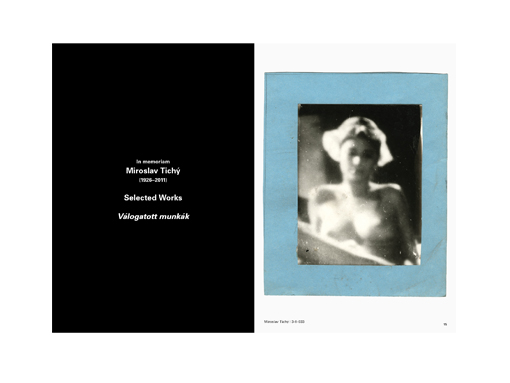Zug Magazine
Obsession
#2
András Bányai: Introduction
It is no coincidence that manic obsession has quite a nasty reputation in terms of both everyday usage and the psychological connotation of the word. First, in good societies, obsessive people are not regarded as presentable. Strangely enough, not because they do not show consideration for others, but because their self-deceit prevents them from showing consideration for the collective self-deceit typical of good societies. This in itself would not be so bad, but raises the question where the line lies between pathological obsessiveness on the one hand and persistently following something through and taking what is really important to you on the other. The general medical consensus is that we have no idea. In the cult of success that invites so much envy, there are some attempts to glorify the obsessiveness of successful people that brought them to the pinnacle of their career. However, upon a closer look at the lives of those around them, we will see many existences sacrificed to the narcissistic indulgence of one person. Not to mention that person’s life. In addition, those mischievous psychology theorists, who are the masters of shattering our illusions, have from the start shocked the educated public by saying that even obsessiveness that creates cultural value, just as the rest of human culture, has its origins in the desire to escape anxiety. This link has been anything but refuted by modern clinical psychology. This is best illustrated by the fact that in bipolar disorder, alias manic depression, the high level of energy experienced during the high periods is also fed by depression. In other words, the potential energy from one extreme of escaping from our negative self-image tips over the balance of compensation to the other extreme. The energy from these ups and downs needs to be objectified, and is, for this reason, channelled into the right activities. In technical terms, this is called “getting hooked” on something. In view of all this, it may not be surprising that the best subject for our need to compensate big-time, feeding off poor self-confidence, is often our own ego. it is easy to see that as a subtype, perfectionism is also a symptom of underlying depression and anxiety. We only feel the need to externally fortify our self-image through the projected opinion of others if we feel insecure about other people accepting us. To escape from this catch-22, it is best to rely on the guidance of the blessed mystics, which says we have no business being perfect. The part of our self that is not perfect is incapable of becoming perfect, and the part that is capable of perfection has always been perfect. Now that we have arrived to the climax of the resolution of this dilemma and the conclusion of our line of thinking, my confession (as a former member of “perfectionists anonymous”) of having been a perfectionist may prove some small consolation, even if i have since managed to leave all that behind. Which means now i am perfect.
Published in 2011
16.5 x 23.6 cm
68 pages
Softcover
Color Offset
Edition of 1000
Contributors
Akiko Watanabe, András Bányai, Mircea Cernov
Tamás Fehérvári, Himaa, Gábor Kerekes, Spencer Lowell
Thomas Marecki, Georg Roske, Benjamin Sommerhalder
Adrienne Sós, C. R. Stecyk III, Miroslav Tichý, Tomoyuki Ono
Raul Vega, Jocko Weyland, Alexis Zavialoff
OUT OF STOCK








